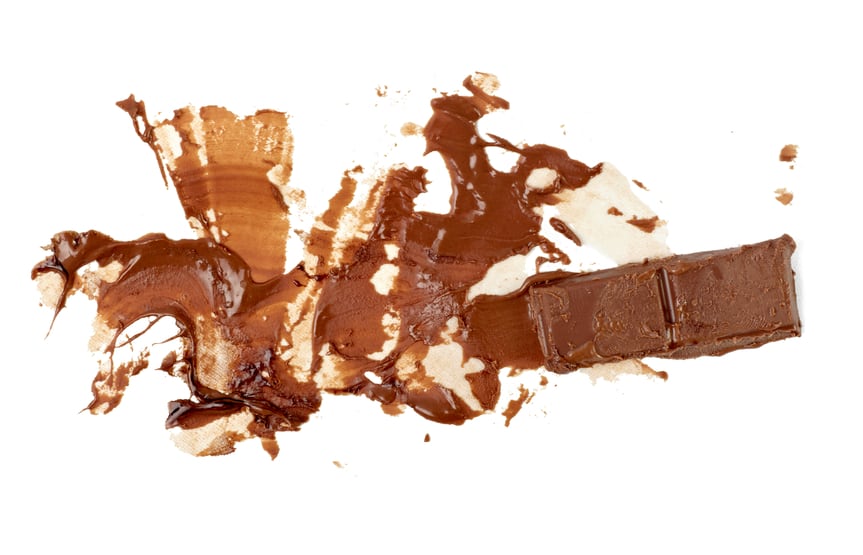The report, compiled by Public Health England (PHE), outlines the sugar content for nine food groups including biscuits, breakfast cereals, yogurt and cakes.
Along with reformulation, the report also advises a reduction in the portion size, and/or the number of calories in single-serve products.
It also wants to see a shift in consumer purchasing towards lower or no added sugar products.
The guidelines accompany the Government’s Childhood obesity strategy, a plan of action released in August 2016 that called for a sugar reduction of 5% by August 2017 and overall by 20% by 2020.
Industry ‘willing to take on challenge’

Ian Wright, director general of the Food and Drink Federation, which represents the UK food and drink manufacturers was in support of the Government’s highly ambitious sugars reduction drive.
“Today’s report represents a constructive platform on which to build a world-leading programme of voluntary sugars reduction, right across food and drink.
“All parts of the food industry need to step up. The guidelines are very stretching but manufacturers, for our part, are willing to take on the challenge.
“Companies are working hard to overcome technical challenges and make gradual tweaks to favourite foods that regular customers can accept. They are also developing new low sugar alternatives. In some foods, portion size reductions will be necessary.”
Wright’s comments are at odds to those from FDF’s corporate affairs director Tim Rycroft, who believed a 20% sugar cut across all food categories by 2020 was too ambitious.
“We have said consistently that a 20% sugar reduction by 2020 across all foods covered won't be technically possible or acceptable to UK consumers,” he said.
“Instead, we believe the success of this work will hinge on the level of sustained engagement coming from the entire food industry.
“That's why the involvement of all players – manufacturers, retailers and out of home operators – is so crucial to securing public support for the level of change we're being asked to make.”
Leatherhead Food Research’s professor Kathy Groves added that in the case of sugar reduction reformulation was not straightforward.
“Sugar has preservation qualities, so plays a role in the shelf-life of a product. It also impacts texture, aeration, fermentation (for products containing yeast), bulk and visual appeal.
“Food manufacturers need to consider interactions between ingredients in a recipe to understand how sugar reduction or replacement will affect the finished product.”
Many biscuits, chocolate and ice cream manufacturers have already taken steps to achieve the sugar targets by reducing portion sizes in keeping with the voluntary code introduced by the Food and Drink Federation.
PHE said it wanted to set ‘challenging but achievable’ calorie guidelines for these categories hence the figures set.
Earlier this month the makers of Kitkat and Aero revealed they were able to reduce the amount of sugar in their chocolate bars by 10% without altering the taste.
By adding more cocoa and milk to these products, Nestle said that they did not have to resort to reducing portion size or adding artificial ingredients.
Nestle have redesigned KitKat packs to include ‘Extra Milk & Cocoa’ labels. These packs will be available from early April.
"We congratulate PHE's tremendous achievement on setting coherent and achievable sugar reduction targets in such a short space of time,” said Graham MacGregor, professor of Cardiovascular Medicine at Queen Mary University of London and chairman of Action on Sugar.
PHE said it would judge the success of the sugar reduction programme by measuring the net amount of sugar removed from key food categories. However, for MacGregor, this did not go enough.
“The missing factor in this report is how these targets will be enforced,” he argued. “Some companies within the food and drink industry have made great progress whilst others are seriously lagging behind and others claiming wrongly that they cannot do it.
“Doing nothing is no longer an option – we need transparency from them about how they are meeting the targets with clear nutritional information made available.
“If these recalcitrant companies don’t comply we need Theresa May to bring in tough measures to ensure compliance and put public health first before the profits of the food industry."
PHE confirmation
The PHE guidance, produced with input from the food industry, suppliers, manufacturers and retailers, amongst others, confirms that efforts to reduce sugar in soft drinks are covered by the industry sugar levy set to come into force in April 2018.
In addition, all sugar types apply except naturally occurring milk sugars in yogurt and sugars in plain whole dried fruit in breakfast cereals.
Low or calorie-free sweeteners that have been approved through European Food Safety Authority’s (EFSA) processes would be considered by PHE to be a safe and acceptable alternative to using sugar.
“The UK has one of the most innovative food sectors in the world and it’s in everyone’s best interests to ensure it remains a dynamic and thriving sector of our economy,” said Duncan Selbie, chief executive of PHE.
“The UK food industry has an opportunity to innovate and show the rest of the world how it can be done. Reducing sugar in the nation’s diet will be good for health and ultimately good for UK food business.”
Sugar reduction is part of a wider PHE led food reformulation programme. This includes work already underway with industry to encourage progress to meet salt reduction targets developed for 2017.
Later in 2017, PHE will begin work to scope its approach to calorie reduction, aimed primarily at the food categories not covered by the sugar reduction programme.
After the Scientific Advisory Committee on Nutrition review on saturated fat is completed in early 2018, PHE will include saturated fat in the programme.
